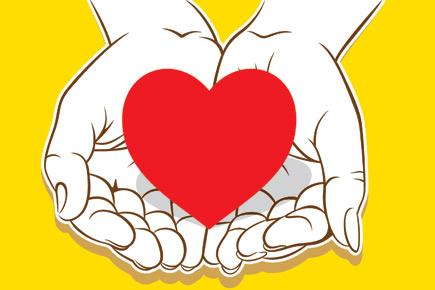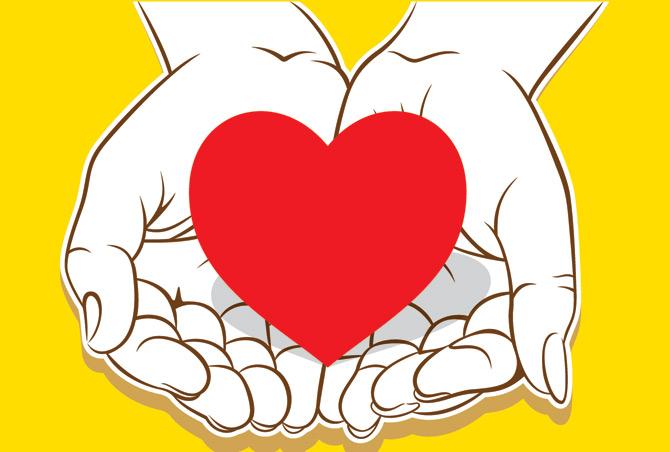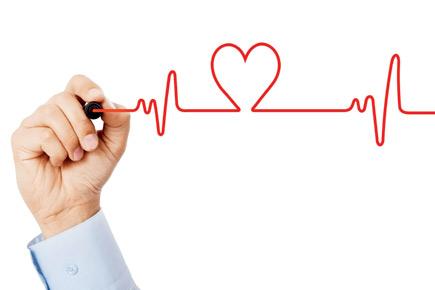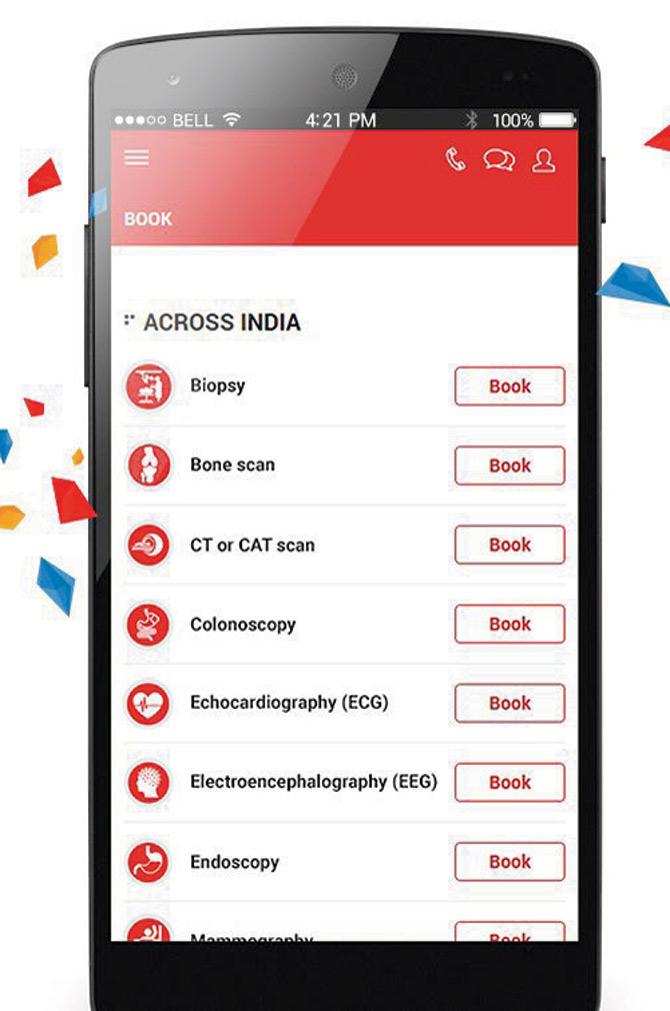On World Heart Day, we invite experts in cardiology and nutrition to help the time-strapped Mumbaikar to identify and offer solutions for a healthy and happy heart

Heart
![]() World heart day
World heart day
Risk #1 Sedentary lifestyle
Of all the risk factors for heart diseases, low aerobic exercise is shown to be the strongest predictor of death.
Solution: Take up 30 to 60 minutes of moderate-intensity aerobic activity such as brisk walking.
ADVERTISEMENT

This is lifestyle physical activity, separate from exercise. For example, walk to the railway station, instead of using an rickshaw or take the staircase instead of the elevator. According to studies, High Intensity Interval Training is more beneficial than a constant, moderate-intensity programme in improving heart health.

Risk #2 Increase in weight and waistline
Fat that accumulates in and around the abdomen is more dangerous for the heart than fat stored elsewhere. When abdominal fat cells release stored fat, it is picked up by the network of veins that direct blood to the liver, pancreas, and other organs. A steady flood of fat can interfere with their function, leading to problems with blood pressure, cholesterol, and blood sugar. Abdominal fat cells also churn out a stream of compounds that can promote inflammation, blood clotting, diabetes, heart disease and liver and kidney trouble.

Solution: Monitor the quantity of food intake. Avoid unhealthy food habits and reduce the intake of processed foods and foods high in sugar. It is a misconception that healthy eating means giving up ‘all the good things’ and eating an oil-free diet. You should include oil in your diet, but make sure it’s in limited quantity. Fruits and vegetables should form the major part of your diet. If you are non-vegetarian, reduce your intake of red meat (once in 2-3 weeks), but lean chicken and fish are safe to
consume regularly.
Risk #3 Undetected lifestyle diseases
A large part of the Indian population has undetected high blood pressure, diabetes and high cholesterol and is unaware of it. This can increase the risks of heart diseases. For instance, diabetes increases the chances of heart disease by five to seven times
Solution: Routine checks are a must. Every adult should know their numbers, and regularly check them; this can be done by a simple blood test and a blood pressure check.
Risk #4 Tobacco consumption
Smoking is believed to triple the risk of heart attacks. Second hand smoke can increase the risk of blood clotting. It can also injure the layer of cells lining the coronary arteries and other blood vessels. Moreover, it can negatively impact your blood cholesterol and blood pressure. All of these factors increase the risk of heart disease in people exposed to environmental and tobacco smoke.

Solution: This is an area where moderation doesn’t work. If you consume tobacco, you need to quit. Ask your doctor about new smoking-cessation programmes and medications. Ban smoking at home and work, too. Standing for an hour in a smoking zone has the same effect as smoking two or three cigarettes.
Risk #5 Hypertension and stress
While stress is part of every Mumbaikar’s life, excessive stress and hypertension can adversely affect the heart.

Solution: Practise yoga and meditation. Take up a hobby, especially creative pursuits such as music and painting. Those suffering from hypertension should opt for a prescription drug that opens blood vessels for improved blood flow as well as diuretics to reduce water and salt retention. You can also go for a low-dose aspirin therapy that may be recommended by your doctor.
Risk #6 Sleep deprivation
People with sleep problems — inadequate sleep, sleep apnoea, and restless legs syndrome — appear more prone to coronary heart disease and heart attacks than the general population. Sleep deprivation has been shown to increase blood pressure, heart rate, and levels of C-reactive protein, any of which could increase the risk of heart attacks. Sleep deprivation can also impair the body’s ability to regulate blood glucose, which could lead to heart disease by damaging the endothelium, the lining of the arteries.
Solution: Ensure that you enjoy an undisturbed sleep for minimum eight hours. Avoid caffeine and excessive use of electronic devices just before bedtime.
Inputs from Dr Aashish Contractor (head of department: Rehabilitation and Sports Medicine, Sir HN Reliance Foundation Hospital and Dr Pratik Soni (Cardiologist, Wockhardt Hospital — Mumbai Central)
Eat right
Myth #1 Stay away from carbohydrates
Thanks to celebrity culture, we have been bombarded with the no carbs diet, which several famous faces follow to loose weight. However, in reality, your body needs good carbohydrates.
Solution: Good carbohydrates that come in the form of whole grains such as wheat, red or brown rice, oats, jawar, bajra, nachni, quinoa, couscous, etc, are necessary for the good health of your heart. One should make it a point to eat three hours before going to bed for proper digestion. Fruits have carbohydrates too.
Myth #2 An active lifestyle means more work and less sleep
Several city slickers pinch on their sleep to keep up with exercise and work schedules. This can be harmful as your body needs sleep to rest and complete different cycles.
Solution: A minimum eight hours of sleep is necessary for good functioning of your heart. It helps complete the digestion process, flush out the toxins and purify your blood. Lack of rest and a bad diet can lead to severe acidity or indigestion that may result in heartburn and arrhythmia.
Myth #3 Following fad diets
A diet plan that has worked for a friend will not necessarily work for you too.
Solution: One of the many fad diets followed today is the ketogenic diet that is high on protein and fat, and low on carbohydrates. While this might work for people with certain conditions, it can have adverse effects on others. Diet plans should be prepared according to the build up of your body, and yo yo diets can cause much harm.
Information courtesy: Anjali Peswani, food consultant and nutritionist
Super foods
Your body needs a maximum of 1 1/2 to 2 1/2 tsp of oil everyday, which can come in the form of oil or even pure ghee. Colourful fruits and vegetables, whole grains, sprouts, walnuts (or other nuts or dry fruits not more than 15 to 20 gm a day), avocado, oil seeds such as flaxseed are good for one’s heart. Those who have milk with their grains such as oats should skip buffalo milk which is fatty and consume cow’s milk or skimmed milk instead.

An online heart camp
The digital healthcare service provider, TopDoctorsOnline (TDO) is conducting a week-long digital camp aimed at creating awareness and guiding users regarding cardiac care. It will go on till October 3. You need to download this app, to avail this offer. It is segregated into three sections — Read, Ask and Book.

From browsing through heart-care related FAQs and articles to asking queries to in-house general physicians, you can also get special cardiac consultation for free by booking appointments for hospitals listed in the Book section. Mumbai-based cardiologists like Dr Prafulla Kerkar and Dr Nilesh Goutam among others, have been brought on board to provide personal advice over the phone to select questions asked on the app.
Available on: Google Play Store
Fact file
It is estimated that about 60 million Indians suffer from heart problems.
12 out of 100 heart attack victims live in cities.
Heart disease is the leading cause of death in India for men and women, accounting to 5 million deaths each year (more than any other disease) and 28% these victims are under 65. According to one of the largest study on heart attacks, called the INTERHEART study, (involving 52 countries) Indians develop heart diseases, about a decade earlier than the West.
By 2020, India will boast of the unenvious distinction of having the highest number of heart disease cases in the world, which will account for one-third of all deaths, many of them being below 40 years of age.
Information courtesy: Dr Pratik Soni, Dr Aashish Contractor
 Subscribe today by clicking the link and stay updated with the latest news!" Click here!
Subscribe today by clicking the link and stay updated with the latest news!" Click here!







